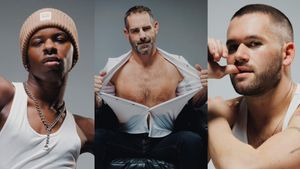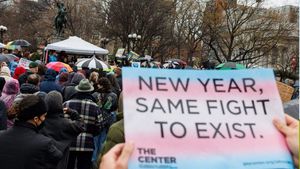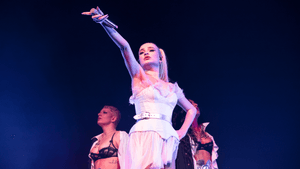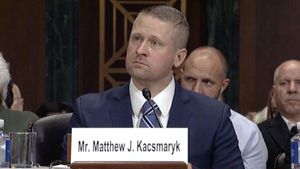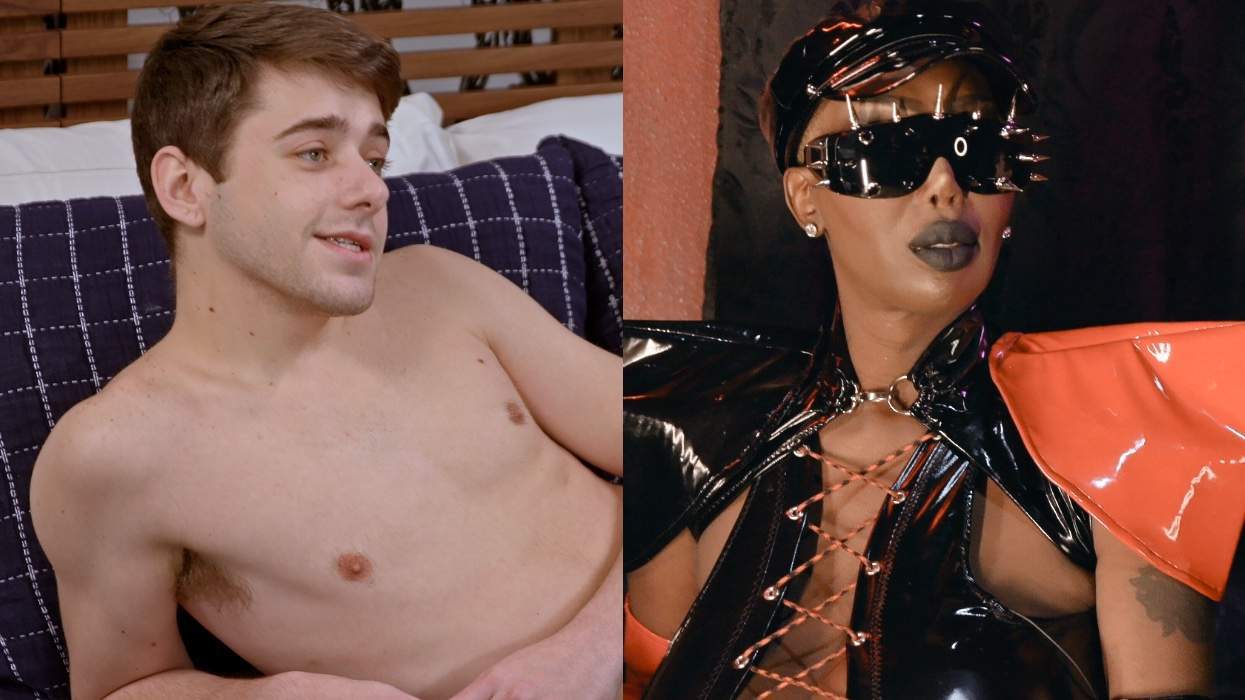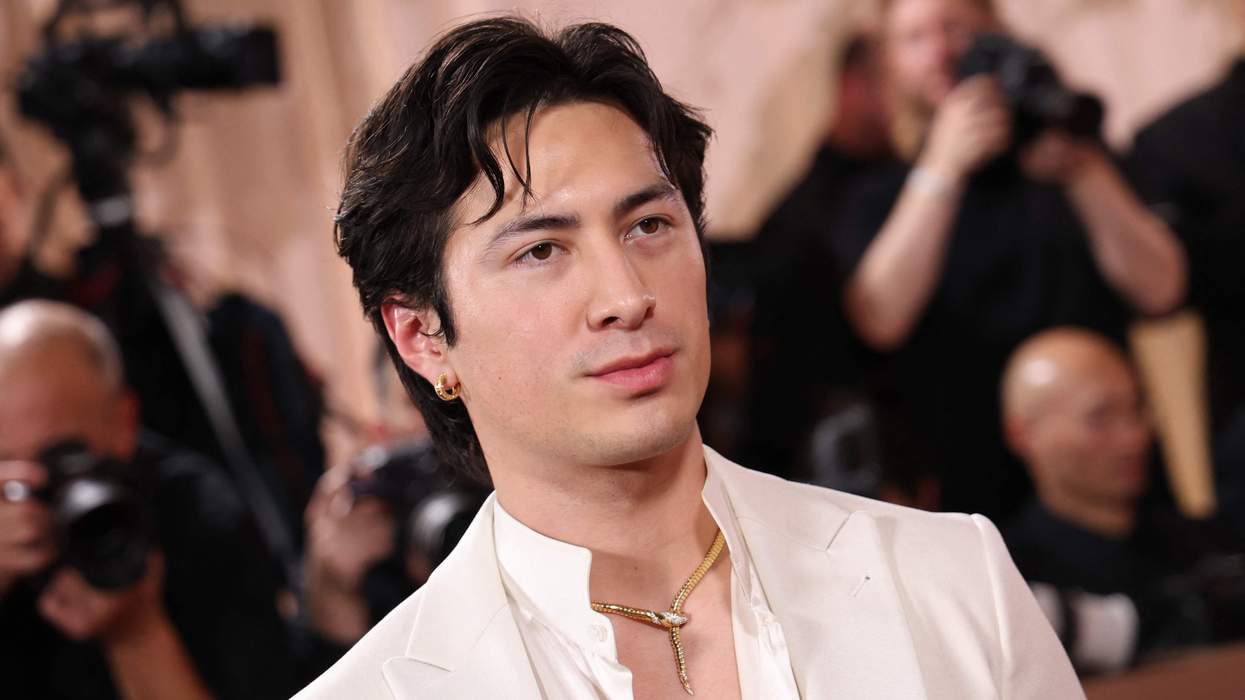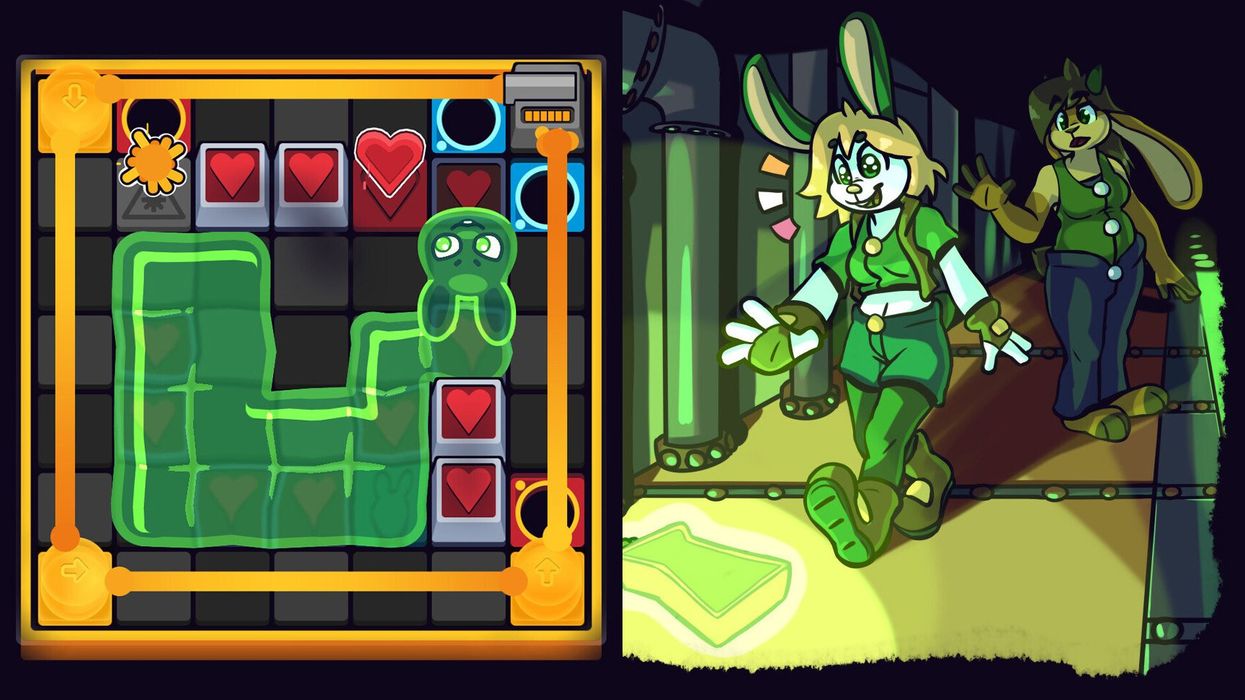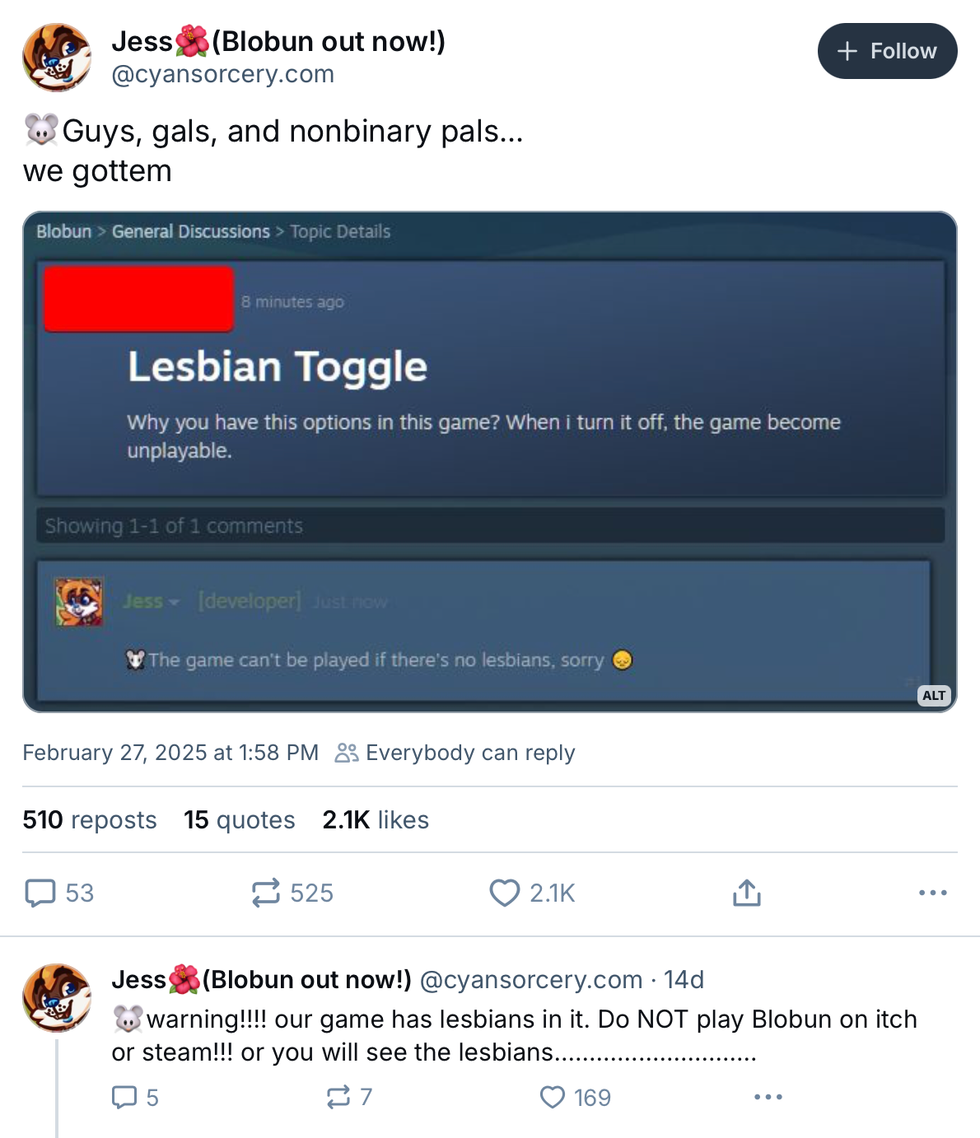Several months after giving the world our first live-action transgender superhero Dreamer (aka Nia Nul), Supergirl finally dove into Nia’s origin by delivering a powerful hour of television that somehow managed to work as a poignant transgender narrative as well as a universally queer tale of family acceptance. The kick-butt episode, "Blood Memory," subtly reinforced the still too-often debated fact that trans women are women, while also tackling how trans folks often still feel the need to hide or downplay their identity, even after coming out to the most accepting of families. In fact, this episode marks a distinct high-point for Supergirl, managing to deliver a story both subtle and direct.
As the episode starts, Nia asks her mentor Kara Danvers (aka Supergirl) to come with her to visit Nia’s hometown of Parthas, a small liberal oasis known for accepting everyone: trans, queer, or (because this is a superhero show) alien. On the way there, Nia shares that while her family always accepted her being trans and half-alien, she wants Kara to not reveal Nia's newly-discovered prophetic dream ability. We quickly learn why: Nia’s alien mother Isabel believes that the dreaming powers, which pass generation to generation from mother to one (and only one) daughter, will manifest in Nia’s older sister Maeve.
While the episode never makes this explicit, it’s clear that while Isabel says she sees Nia as a daughter, she never considered that Nia would be the one to inherit the powers due to Nia being transgender. Yet, the fact that we as the audience know that, in actuality, Nia has inherited the powers over Maeve brilliantly allows us to instantly see through the family’s facade of acceptance to what really lies beneath; that despite their acceptance, Nia’s family doesn’t truly see her as a "real" woman.
We’re also allowed to feel Nia’s discomfort at the whole situation. If she doesn’t reveal that she has the dreams, Maeve will continue to live in false hope and feelings of inadequacy for not yet having the dreams. But if Nia speaks up, she runs the risk of her trans identity becoming a barrier between her and her family, something she has worked hard to avoid. Even more, we feel Nia's dismay that while she wishes to share her excitement at her powers with her loved ones, she believes that it would only cause resentment. As a result, Nia is left in a no-win situation.
We feel all of this, even as the show smartly never indulges in the worst tendency of the Supergirl writers (and CW writers in general) to make the message overly-explicit. Instead, the writers allow us to work out all the implications for ourselves, forcing us to analyze our discomfort with what’s happening on screen. It places the viewer in the position that so many queer people find themselves in when returning home, forced to recognize how different our lives are from the rest of our family simply because of how the world reacts to our queer identity. Even further, many of us feel we can't make those closest to us truly understand what we go through, mostly because they rarely realize the differing struggles we have to face.
It also shows how even when a family is overwhelmingly accepting of someone being transgender, those trans family members often get left out of gendered activities or groups. It’s not uncommon for a trans woman to be left out of "girl’s night" or for transgender men to be ignored as the rest of the men play football. While this is often unintentional, it causes trans people to constantly feel our distinction from our cis kin, yet often work to not draw attention to our discomfort for fear of putting our seeming difference on display for everyone to see.
Taking the implications of the episode even further, we see from the writers that those differences are actually non-existent. By having Nia inherit a power given only to women, the show has built a world where transgender women are just as much a part of womanhood as cis women. That trans women are women. The distinctions we think we see between trans and cis women (as well as trans and cis men) are all in our head. While our paths within womanhood or manhood are distinct, they are all still part of the same journey.
It’s also worth mentioning that this episode takes place eleven episodes after Nia’s introduction. Instead of following in the footsteps of most TV shows and movies that introduce a transgender character by instantly focusing on Nia’s transness, the show has allowed Nia's character to develop beyond being the token trans person. This development makes it all the more powerful when we do discuss Nia’s transness, because we see her as a full person rather than someone defined by that one aspect of her identity.
Later in the episode, Isabel learns of Nia’s true abilities just before Isabel’s death (it’s complicated) and, realizing her mistake, embraces her daughter and asks forgiveness for the oversight. Instead of erecting a barrier, Nia’s powers bring her closer with her mother then ever before, and at the last possible moment. Yet, Nia’s fears prove to be well-founded when Maeve learns that she won’t be getting dream powers after all. Maeve lashes out at Nia, yelling "But you aren’t even a real woman." Exactly as Nia worried, her transness has unintentionally (and through no fault of her own) laid bare Maeve’s inability to fully accept Nia as a sister.
Smartly, the episode doesn’t end with the sisters reconciling. Instead, Nia is left to go home with the weight that her transness may have irrevocably destroyed her sisterly relationship, despite her best attempts. As for many queer people, Nia shoulders the responsibly for building a wedge in her family, despite it being entirely her sister's fault.
However, the episode manages to end positively as Kara, who has been going through her own sister troubles this episode, "comes out" as Supergirl to Nia. Just as trans people are often left to find a family outside of their own biological one, so too does Nia find that she isn’t actually alone in being estranged and different from her family. It’s a powerful moment between two women forced to find comfort outside of those they would usually confide in.
Supergirl has always been known for centering dynamic, unique and powerful women, as well as the myriad relationships, good or bad, that women can form. For the show to focus on a transgender woman’s story with uncharacteristic subtly, depth, and grace sends a strong message that transgender women have every right to be seen alongside other powerful women, and are just as strong superheroes.









